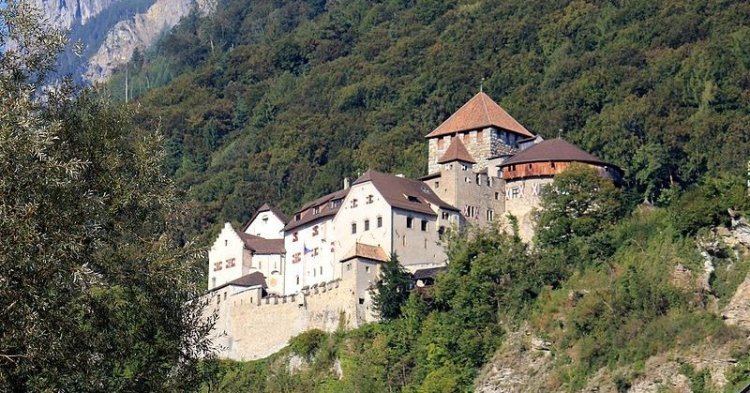The first thing that is clear about the media sector in general, and particularly the freedom of the press in European microstates, is the lack of information. In its annual ranking, Reporters Without Borders (RSF) only analyses the situation in two of these countries: Liechtenstein and Andorra. They ranked fairly well in 2020 (24th and 37th respectively), although their positions have fallen very sharply since 2014. The American NGO Freedom House’s media ranking (“Freedom and the Media”) includes the Republic of San Marino (classified as “free” in 2017). Information is thus incomplete.
These countries are clearly in very unique positions. Although their Constitutions more or less explicitly guarantee press freedom [1], their small size and population make the domestic media market virtually negligible. Reading foreign media, especially in countries sharing the same language (German for Liechtenstein, Italian for San Marino and the Vatican, French for Monaco, and Catalan, Castilian or French for Andorra) is commonplace, and allows citizens to stay informed. However, local issues are rarely discussed, which raises the question of a lack of transparency around societal issues.
In general, these countries suffer from a persistent lack of transparency that consistently negatively affects the work of local journalists. The size of the media market does not encourage pluralism, and in monarchical (Monaco and Liechtenstein) and theocratic (Vatican City) states, writing about the royal family or religious elites could lead to legal action.
Andorra: business confidentiality in the heart of the Pyrenees
The Principality of Andorra, the largest of the European microstates (468 km², 77,000 inhabitants in 2019) has been included in the analysis of Reporters Without Borders since the mid-2000s. In 2014, the country led by two “co-princes” (the President of France and the Bishop of La Seu d’Urgell) was in 5th position. In 2020, it was only at 37th place after dropping 27 places between 2014 and 2015. This drop can explained by the closeness of the political world and the financial sector, and the money laundering scandal which rocked the Banca Privada d’Andorra (BPA) in March 2015.
In its 2020 report, RSF pointed out that the country’s nefarious tax reputation was not yet behind it, despite the EU decision to stop considering Andorra as a tax haven. Two major problems affect journalists: the financial sector’s influence and lack of transparency, and an extremely limited media restricted by the influence of the public authorities and the Church. However, the media landscape is rather diverse for such a small country: there are many local daily newspapers in Catalan, such as El Periòdic d’Andorra, Ara Andorra, Diari d’Andorra, Bon Dia, which exist in print. Poble d’Andorra and Altaveu are the main online newspapers, and La Vanguardia, a daily newspaper in Barcelona, has a local Andorran edition.
Liechtenstein: where local pluralism does not exist
Like Andorra, Liechtenstein has been analysed by RSF since the mid-2000s. The second largest microstate in Europe (160 km², 38,650 inhabitants in 2019) ranks 24th in the 2020 edition. However, like the Pyrenean principality, the Alpine principality and vestige of the Holy Roman Empire wedged between Switzerland and Austria has experienced a significant fall in the rankings, going from 6th to 27th position.
The main problem affecting the local media is the lack of pluralism: the two national daily newspapers (Liechtensteiner Vaterland and Volksblatt) are owned by the country’s two political parties (the Patriotic Union and the Progressive Citizens’ Party, respectively) and the radio station belongs to the government. It should also be noted that the newspapers’ coverage of Liechtenstein’s performance in the RSF 2020 ranking was very positive, seemingly failing to recall that the country has been falling in the rankings since the mid-2010s. Despite this, there is a short letter from a reader on Volksblatt’s site that denounces the “nepotism” normalised in the country, and citizens can get information from the Swiss German (such as Die Südostschweiz or St. Galler Tagblatt Online) or Austrian (Vorarlberg) media.
In order to tackle the lack of transparency in the financial sector, Liechtenstein put an end to bank secrecy in 2013. This was a big step forward in the fight against tax fraud, and increased journalists’ ability to carry out investigations into such matters.
San Marino: European Council expresses concern
San Marino, the world’s oldest republic (since 301AD), has not been analysed by Reporters Without Borders. The country (61 km², 33,350 inhabitants in 2018) entirely surrounded by Italy is nevertheless included in the statistics of Freedom House, an American NGO which publishes a ranking of political freedom in the world each year. In 2019, it wrote that “Freedom of the press [in San Marino] is generally upheld. Local media are pluralistic, and journalists investigate key issues including financial crimes. However, the risk of heavy fines or civil damages under San Marino’s strict defamation laws can prompt self-censorship among journalists.” The American NGO therefore gave it a media freedom score of 3 out of 4.
However, the small republic was the subject of a Council of Europe report in 2015. The report, written following a visit to the country, raised concerns about media freedom, in particular about the fact that defamation was still criminalised, and that the media complaints procedure could cause political interference in media content. The report also indicated a lack of regulation for the media sector and journalistic work. Like the other microstates, San Marino benefits from neighbouring countries’ media. In this case, the Italian La Tribuna Sammarinese and Libertas are the country’s main newspapers.
Monaco: no treason on The Rock
The Principality of Monaco is one of the world’s smallest states (2 km², 38,700 inhabitants in 2018). Naturally, this means that RSF does not cover its press freedom. Nevertheless, in 2019, Freedom House gave the country a score of 4 out of 4, arguing that freedom of the press was adequately respected. The local media sector is also not insignificant, with publications such as La Gazette de Monaco, Monaco Hebdo, and La Principauté. RMC, the acronym for Radio Monte Carlo, was created in Monaco in 1943 to circumvent the state monopoly on radio broadcasting in France. Since 2002, its studios are located Paris. In fact, the Monégasques read a lot of French media, especially from Nice.
In 2007, the Marc Giacone affair caused a scandal in the country. The cartoonist was charged with insulting the head of state, Albert II, as he had depicted the sovereign with a clown nose on his website Monaco Politic Circus. His site was been shut down by authorities and he faced up to six months in prison. He was ultimately acquitted.
The Vatican: counterattack to "Vatileaks 2”
Vatican City is the world’s smallest state (44 hectares, 825 inhabitants in 2018). For comparison’s sake, Paris’ smallest arrondissement (the 2nd arrondissement) is 99 hectares. The Vatican is made up of two separate legal entities (the Holy See and the Vatican City State). The Pope is the spiritual and temporal head, with absolute power. Since 2015, the Dicastery for Communication has been the Roman Curia’s mouthpiece; among other things, it deals with the editorial direction of the Vatican and its press room. L’Osservatore Romano is the most important daily newspaper and it is published by the Vatican’s official news service. Vatican Radio is the official radio, defining itself as the “voice of the Pope”. Vatican Media is the public television channel.
However in 2015, the "Vatileaks 2” revealed the Vatican administration’s lack of transparency as well as its ability to take action. That year, confidential information about the real-estate holdings of the Holy See was disclosed in two books that highlighted cases of mismanagement and embezzlement. The reaction of the Vatican authorities was ferocious: five people were prosecuted. Three members of the administration responsible for the leaks and two Italian journalists, Gianluigi Nuzzi and Emiliano Fittipaldi, the authors of the books. In November 2015, the latter published a column in the Italian newspaper La Repubblica where he denounced the Vatican’s resistance to journalism: “The Vatican legal system considers the essence of our profession to be criminal: the duty to publish the facts that the government, in whatever form it takes, wants to hide from the public.”
This scandal clearly illuminates the lack of freedom of the press in the Vatican. According to the newspaper La Croix, no Vatican law guarantees this freedom or the protection of sources. Reporters Without Borders also supported Gianluigi Nuzzi after he refused to appear before the investigators, in the name of “freedom of the press”.


Follow the comments: |
|
